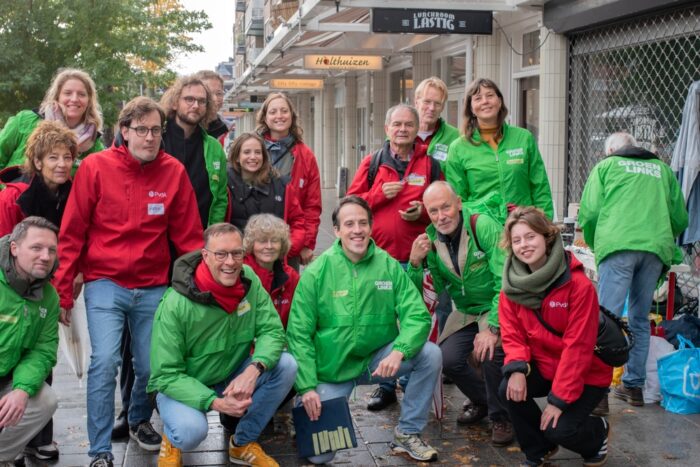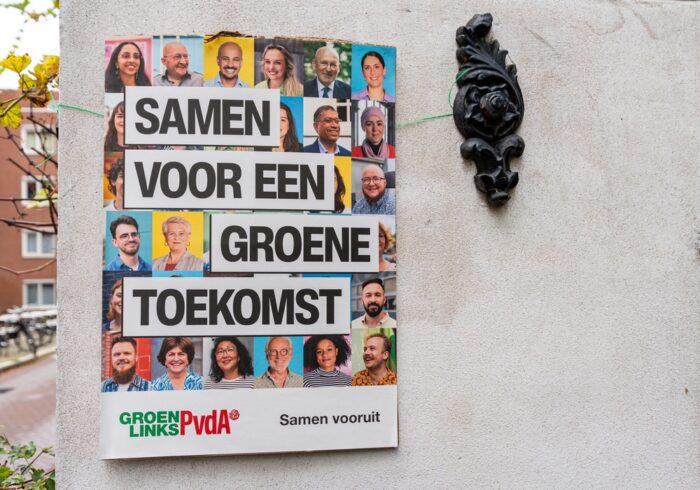The Progressive Post
Bulgarian elections 2021: shattered status quo and the need to revive the left
Against the backdrop of the Covid-19 crisis, Bulgarians have firmly proved they want a political change by electing six parties to the National Assembly. Corruption, fear and protests influenced the election results on 4 April and cast a shadow over the prospects of a stable government.
In the summer of 2020, Bulgarians marched the streets of the capital and demanded the resignation of Boyko Borissov’s government and the prosecutor general. Shortly after the start of the Covid-19 crisis, many young people, working and studying abroad, arrived home to face corruption scandals, unaccountable prosecution and ineffective government. They infused energy into the discontent around Borissov’s third coalition in power and sparked protests. The president, Rumen Radev, strongly supported the mass protest.
The government maintained its position by using two main strategies: 1) exploiting politics of fear by lifting the restrictive pandemic measures so that there was a peak in virus cases around election day, with many people refusing to vote and overall activity being low and 2) abusing state resources for electoral gains, partly helped by Covid-19, which was noticed by the OSCE/ODIHR. Despite emerging first in the parliamentary elections, the centre-right ruling GERB party achieved a pyrrhic victory as all the other parties represented in the parliament declared they would not collaborate with GERB in any form. The door to a political crisis is thus now wide open.
The minor partner in the previous ruling coalition, “United Patriots”, failed to reach the 4 per cent threshold to enter the parliament, but this does not mean that nationalistic trends have disappeared in Bulgaria. On the contrary, extremist attitudes were attracted by those who surprisingly finished second – the formation around the long-time TV host Slavi Trifonov, “There Is Such a People”. This is a nationalistic but pro-European and pro-NATO political party that lacks a coherent ideological profile and that constructs its main ideas on clearly neoliberal recipes for the economy, minimising the role of the state and introducing direct democracy elements which require constitutional amendments. The personal history of Trifonov is similar to that of Ukraine’s Volodymyr Zelensky – a popular TV host and musician. Trifonov is emblematic of the Bulgarian transition period, including its underground workings. He is an anti-system player and his declaration that he will not collaborate with any establishment party, along with the substantial electoral support he has gained, means that Bulgaria will most probably now embark on a cascade of elections.
The vote on 4 April reflected the sad story of the Bulgarian Socialist Party (BSP), which scored its lowest result in 30 years and became the third parliamentary group. Some of the objective explanations for this are that elderly people, who are the core supporters of the BSP, were afraid to go to the polling stations due to Covid-19, and the fact that the BSP has been through a series of internal scandals. The strategy of its party leader, Kornelia Ninova, to centre the BSP on the conservative terrain of identity politics and to turn back to social-economic reforms was a huge mistake. The BSP did not manage to explain what future it envisages for the country, and the combination of weak ideas and unpopular candidates led to catastrophic results. The reform of the left in Bulgaria is crucial for society, as the BSP is the last barrier to a total capture of the political landscape by the right-wing, either in their more moderate, or extremist versions.
The wave of protests boosted the election result for two liberal formations around the former justice minister, Hristo Ivanov, and former ombudswoman, Maya Manolova (“Stand Up! Thugs Out!”). Ivanov’s “Democratic Bulgaria” (a coalition of centre-right, liberal and green parties) is a symptomatically urban political force that even managed to leave GERB behind in the capital Sofia. Their results might be considered a success, but both formations lack the support needed to form a majority. The immediate positive result is that the anti-minority and xenophobic rhetoric in the current public discourse will be minimised because the right-wing nationalists, GERB’s former coalition partner, have lost their electoral support.
In a political constellation where everyone refuses to form a coalition with the winner GERB, there are potentially three key scenarios. The first is that if a government cannot be formed, then early elections could be called – either in the summer, or two-in-onе along with presidential elections in the autumn. The second scenario would be an attempt to form a fragile parliamentary majority, without GERB. This fragile minority would appoint a temporary government, with a limited time frame, to make reforms in several key areas – for instance, revisions of the current government and electoral code, and healthcare reform, judicial reform, and economic recovery. The third scenario is that GERB would give its support for the formation of any government, without participating in it, because in this way the president, Rumen Radev, would be prevented from appointing a caretaker government. Some political parties, including Borissov’s GERB, might play their card with the Supreme National Assembly, which has constituent powers to amend constitutional provisions.
In a deadlocked political situation, Bulgaria faces a cascade of crises – political, health, social and economic. GERB is in a dead-end without any prospect of governing. The other political parties seem totally incapable of getting along. The key to solving this puzzle lies in the hands of the president. Radev, a former chief of Bulgaria’s air force, was nominated by the socialists in 2016 and quickly became Borissov’s most severe opponent. The Bulgarian constitution sets out an important role for the president to initiate consultations to form a government and to appoint a caretaker government if consultations fail.
For the time being, Radev is the person that has the highest public confidence. His decisions will strongly influence the possibilities of forming a new government or holding early elections. At the same time, his decisions will be a blueprint for his own re-election later in the year, as he has already announced his decision to run for a second mandate.
Given this intricate political situation, there might be a chance of finally abolishing GERB from Bulgaria’s political landscape after 13 years in power. Whether Bulgaria will continue to lag behind and remain the poorest and most corrupt of the EU’s member states depends on the level of readiness of its political players to compromise and carry out bold reforms. It also depends on the ability of Bulgaria’s left to revive itself.
Photo Credits: Shutterstock.com/RR
Related articles:
Anti-government protests enter the parliament, by Kristian Vigenin, Member of the Bulgarian National Assembly and member of the PES Presidency
Bulgarian elections 2021: checkmate!, by Tsvetelina Penkova, member of the European Parliament in the Group of Socialists and Democrats
The Bulgarian parliamentary elections of 4 April and the quest for a new social contract, by Georgi Pirinski, Member of the European Parliament (2014-19)




